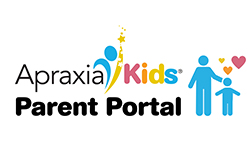Planning for Employment
Seeking gainful employment is a natural next step for many teens and young adults. Job hunting can be exciting and stressful for everyone, especially individuals with disabilities, but everyone has skills, passion, and knowledge that fit a job that’s just right for them. Planning ahead is the best way to start the job search so you can know your options, goals, accommodations, rights, and more.
Finding a Job That is Right for You: A Practical Approach to Looking for a Job as a Person with a Disability
Dos and Don’ts of Looking for a Job
Strategies to Consider in Seeking Employment
Disability Disclosure
Choosing when, how, or even if you want to tell someone about your disability is a very personal choice. In terms of employment, it’s important to know that you are not obligated to disclose your disability right away. Instead, pursue the job you want, and disclose your disability if/when you need to ask for workplace accommodations. Employers should not ask personal medical questions or if you need accommodations until after a conditional offer is made, unless you are the one to initiate it.
The Job Accommodation Network (JAN) has some additional tips and resources on disability disclosure to help you plan.
Accommodation and Compliance: Disability Disclosure
Disclosing a Disability Before an Accommodation is Needed
Disability Disclosure and Interviewing Techniques for Persons with Disabilities
Workplace Accommodations
Not everyone will need accommodations to perform their jobs, but others may need a few accommodations to be successful at their work. People with disabilities are protected by the Americans with Disabilities Act (ADA) and entitled to reasonable accommodations in the workplace. Only you know what accommodations would be best for you, but sometimes you don’t even know where to start or what kind of accommodations exist. Below are some questions to consider when coming up with accommodations, some sample accommodations for employees with speech/communication disorders, and some additional resources to help you plan ahead.
Questions to Consider When Creating Accommodations
- What limitations is the employee experiencing?
- How do these limitations affect the employee and the employee’s job performance?
- What specific job tasks are problematic as a result of these limitations?
- What accommodations are available to reduce or eliminate these problems? Are all possible resources being used to determine possible accommodations?
- Once accommodations are in place, would it be useful to meet with the employee to evaluate the effectiveness of the accommodations and to determine whether additional accommodations are needed?
- Do supervisory personnel and employees need training?
Sample Accommodations for Speech/Communication Disorders
- Augmentative and Alternative Communication (AAC)
- Speech generating communication device with phone access
- Job restructuring
- Flexible schedule
- Scribe/note taker
- Talking phones
Additional Resources
A to Z of Disabilities and Accommodations
ADA Accommodations
Searchable Online Accommodation Resource (SOAR)
Job Applicants and the ADA
Searching for Jobs
There are many different ways you can search for jobs nowadays, but it can still be overwhelming to find the right job, or even the best search engine. Below are some job search engines specifically designed to help individuals with (dis)ABILITIES to find the job that’s made for them.
ABILITY Jobs
ABILITYE.com
Chronically Capable
disABLEDperson
National Business & Disability Council
Galt Foundation
Getting Hired
Hire Disability Solutions
Recruit Disability
Talent Acquisition Portal
Additional Reading
These publications on Secondary Transition are from PaTTAN (Pennsylvania Training and Technical Assistance Network). While PaTTAN is a Pennsylvania-based organization, the resources below can generally apply to children and teens with disabilities across the US.
Planning for the Future Checklist
Job Skills: Getting Ready for Work
Preparing for Employment
Financial Fundamentals: Discussion Starters
A Worksheet for Parents of Students with Disabilities
Customized Employment
National Resources
US State Vocational Rehabilitation Agencies
Vocational Rehabilitation Agencies are established in all US states and territories and are designed to help individuals with all types of disabilities to find employment, independent living, and more. Your local agency would be a great place to find employment support.
Job Accommodation Network
The Job Accommodation Network (JAN) provides free consulting services for all employees, regardless of medical condition. Services include one-on-one consultation about all aspects of job accommodations, including the accommodation process, accommodation ideas, product vendors, referrals to other resources, and ADA compliance assistance.
National Technical Assistance Center on Transition (NTACT)
The NTACT provides information, tools, and supports to help various stakeholders in delivering effective services and instruction for secondary students and out of school youth with disabilities.
A Transition Guide to Postsecondary Education and Employment for Students and Youth with Disabilities
Published by the Office of Special Education and Rehabilitative Services, United States Department of Education.
Discrimination
The Americans with Disabilities Act (ADA) protects the rights of individuals with disabilities, and specifically the Rehabilitation Act for those who are working. There are resources and supports available for people with disabilities who feel they are being discriminated against in the workplace. The US Equal Employment Opportunity Commission (EEOC) outlines Disability Discrimination and provides additional resources for discrimination resolution options. Knowing your rights and being informed is the best place to start!
